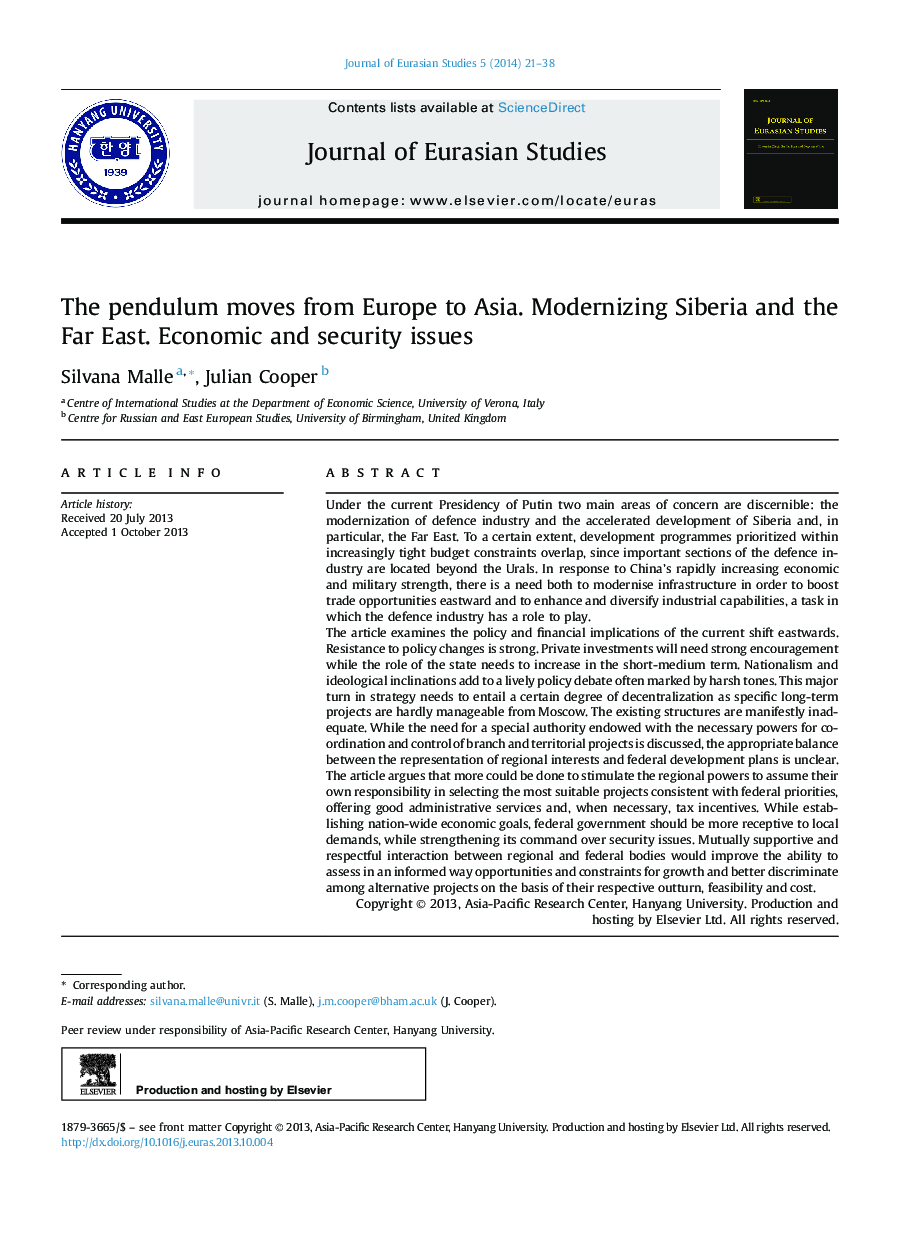| Article ID | Journal | Published Year | Pages | File Type |
|---|---|---|---|---|
| 1127217 | Journal of Eurasian Studies | 2014 | 18 Pages |
Under the current Presidency of Putin two main areas of concern are discernible: the modernization of defence industry and the accelerated development of Siberia and, in particular, the Far East. To a certain extent, development programmes prioritized within increasingly tight budget constraints overlap, since important sections of the defence industry are located beyond the Urals. In response to China's rapidly increasing economic and military strength, there is a need both to modernise infrastructure in order to boost trade opportunities eastward and to enhance and diversify industrial capabilities, a task in which the defence industry has a role to play.The article examines the policy and financial implications of the current shift eastwards. Resistance to policy changes is strong. Private investments will need strong encouragement while the role of the state needs to increase in the short-medium term. Nationalism and ideological inclinations add to a lively policy debate often marked by harsh tones. This major turn in strategy needs to entail a certain degree of decentralization as specific long-term projects are hardly manageable from Moscow. The existing structures are manifestly inadequate. While the need for a special authority endowed with the necessary powers for coordination and control of branch and territorial projects is discussed, the appropriate balance between the representation of regional interests and federal development plans is unclear.The article argues that more could be done to stimulate the regional powers to assume their own responsibility in selecting the most suitable projects consistent with federal priorities, offering good administrative services and, when necessary, tax incentives. While establishing nation-wide economic goals, federal government should be more receptive to local demands, while strengthening its command over security issues. Mutually supportive and respectful interaction between regional and federal bodies would improve the ability to assess in an informed way opportunities and constraints for growth and better discriminate among alternative projects on the basis of their respective outturn, feasibility and cost.
